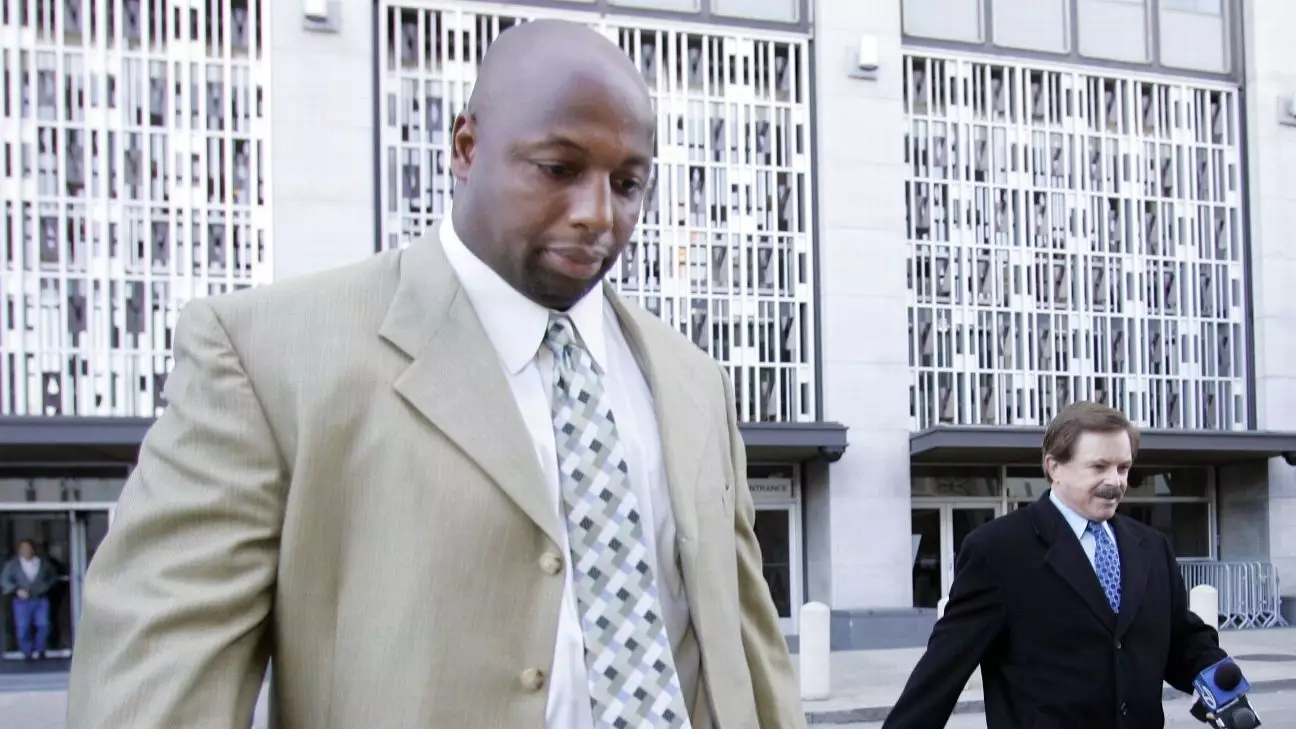Dana Stubblefield, a former standout with the San Francisco 49ers, has recently found himself at the center of a legal maelstrom that reflects broader issues of race, justice, and the legal system’s efficacy. Initially convicted in October 2020 for the rape of a developmentally disabled woman—a conviction that carried a harsh sentence of 15 years to life—Stubblefield’s case has been marked by significant controversy and discussion following its recent overturning by the Sixth District Court of Appeal.
The conviction stemmed from an incident in 2015, where prosecutors contended that Stubblefield had lured the victim to his home under false pretenses, promising her a babysitting job. In stark contrast, Stubblefield’s defense maintained that the sexual encounter was consensual and that the woman had accepted payment in exchange for sex. This duality of narratives speaks to the complexities of interpreting consent, vulnerability, and coercion inherent in cases of sexual violence.
As of late 2024, Stubblefield’s conviction was vacated, yet his legal battle remains far from over. Santa Clara County’s Superior Court Judge Hector Ramon recently ruled against granting bail, citing that the matter remains in the purview of an appeals court until a remittitur is issued. This decision leaves Stubblefield, whose conviction has been overturned, still incarcerated—an anomaly in legal proceedings that raises tough questions about the impact of ongoing litigation on an individual’s liberty.
Stubblefield’s attorneys argued vehemently for his release, highlighting the apparent inconsistency of keeping someone deemed legally innocent behind bars. They contended that Stubblefield’s status should revert to pretrial conditions, suggesting that the judge has the authority to relocate Stubblefield to county jail and grant him bail before the completion of ongoing proceedings. This argument introduces important discussions regarding the presumption of innocence in American law and the practical implications of its application.
A pivotal component of this case revolves around allegations of racial bias influencing the original trial. The Sixth Court of Appeal ruled that the prosecution had violated the California Racial Justice Act of 2020, which explicitly forbids racial discrimination in judicial processes. The court noted the use of “racially discriminatory language” during trial, a revelation that has profound implications not only for Stubblefield but also for future cases where racial bias may be a factor.
This ruling is situated within a larger societal context, particularly the aftermath of the police killing of George Floyd, which catalyzed a national conversation surrounding race and justice. Stubblefield’s case becomes a lens through which the challenges of addressing systemic bias in the legal system are magnified, raising questions about the effectiveness of legislation aimed at combating racial injustice.
Reactions to Stubblefield’s situation have varied significantly across different sectors of the public and legal communities. On one side, supporters have lauded the appellate court’s recognition of racial bias, praising the ongoing commitment to achieving a fair judicial procedure. Conversely, prosecutors continue to advocate for Stubblefield’s continued custody, casting doubts on the merits of the appellate court’s decision.
In the court that day, Deputy District Attorney Tim McInerney’s office reiterated its stance supporting Stubblefield’s bail denial, reflecting a rigid adherence to the complexities and sensitivities surrounding cases of sexual violence, compounded by the significant public interest surrounding Stubblefield’s celebrity status as an NFL player.
Dana Stubblefield’s case serves as a microcosm for the interplay between race, justice, and the legal system in America. As he remains in prison pending the resolution of his appeals, his legal challenges spotlight the tension between the principles of justice and the realities of the judicial process.
The unfolding events raise significant questions not just about the conviction’s validity, but also about the broader implications of race in the legal context. Stubblefield’s fight for justice encapsulates the struggles of many who find themselves ensnared by a system that is all too often influenced by societal biases and prejudices. The resolution of this matter will likely have repercussions that extend far beyond Stubblefield himself, affecting how future cases are prosecuted and perceived in the court of public opinion.


Leave a Reply